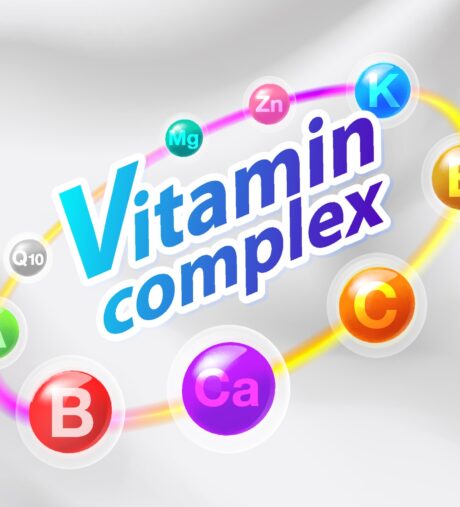
Vitamins keep your body healthy and strong. All kinds of vitamins have a unique function. Some benefit your bones, others benefit your skin or give you energy. There are so many types, and it is essential to understand what each vitamin does. In this guide, you will discover what every type of vitamin does and how it can make you feel your best.
What Are Vitamins and Why Are They Important?
A type of vitamin is something your body needs to work properly. Vitamins help your body grow, heal, and stay safe from sickness. If you don’t get enough of a certain type of vitamin, you might feel tired, weak, or even get sick. That’s why it’s important to eat healthy foods that give you all the vitamins you need.
Two Main Types of Vitamins
There are two big groups of vitamins: fat-soluble and water-soluble. Each group works in a different way.
Fat-Soluble Vitamins
This type of vitamin is stored in your body’s fat and liver. You don’t need to consume them every day, but getting the right amount over time is key. Fat-soluble vitamins include Vitamin A, D, E, and K—they help with vision, bone strength, skin health, and healing.
Water-Soluble Vitamins
This group includes Vitamin C and the B-complex vitamins like B1, B6, B12, and folic acid. This type of vitamin isn’t stored in your body, so you need to get it daily through food or supplements. These vitamins help with energy, brain function, and your immune system.
A Closer Look at Each Type of Vitamin
Vitamin A
Supports your vision, immune system, and skin health. This type of vitamin is found in carrots, sweet potatoes, and leafy greens.
Vitamin B Group
Each type of vitamin in the B group helps your body make energy, create red blood cells, and keep your brain sharp. You’ll find these in whole grains, eggs, dairy, and meats.
Vitamin C
Helps your body heal wounds, boosts your immune system, and keeps your skin firm. You can get this type of vitamin from citrus fruits, bell peppers, and strawberries.
Vitamin D
Known as the “sunshine vitamin,” this type of vitamin helps your body absorb calcium and build strong bones. You can get it from sunlight, eggs, and fatty fish.
Vitamin E
This type of vitamin acts as an antioxidant, protecting your cells from damage. It also supports skin and eye health. Good sources include nuts, seeds, and spinach.
Vitamin K
Helps your blood clot properly and supports bone health. You’ll find this type of vitamin in green vegetables like kale, broccoli, and spinach.
Getting the Right Type of Vitamin from Food
Eating a variety of healthy foods is the best way to get every type of vitamin your body needs. Fresh fruits, vegetables, whole grains, lean meats, dairy, and nuts all offer different vitamins. You don’t need to memorize which food has which type of vitamin—just aim to eat colorful, balanced meals each day.
Quick Tip:
- For strong bones: Focus on Vitamin D and Vitamin K
- For glowing skin: Include Vitamin A and Vitamin E
- For energy: Load up on B vitamins
Can You Get Too Much of a Vitamin?
Yes—especially with fat-soluble vitamins like A, D, E, and K, which your body stores. Taking too much of this type of vitamin through supplements can lead to side effects. Water-soluble vitamins are usually flushed out if you get too much, but it’s still best to stick to recommended daily amounts. Always check with your doctor before starting a new supplement.
Conclusion
Each type of vitamin plays a special role in keeping your body healthy. Whether it’s helping you fight off a cold, giving you energy, or keeping your bones strong, these nutrients are essential. The best way to get them? Eat a balanced, colorful diet full of whole foods. If you ever feel like you’re not getting enough of a certain type of vitamin, a healthcare provider can help you decide if supplements are right for you.
✅ Vitamin Quick Table
| Vitamin | Category | Main Benefit | Food Sources |
| Vitamin A | Fat-soluble | Eyes, skin, immune system | Carrots, sweet potatoes, spinach |
| Vitamin B | Water-soluble | Energy, brain, red blood cells | Whole grains, meat, eggs |
| Vitamin C | Water-soluble | Immunity, skin, healing | Oranges, berries, bell peppers |
| Vitamin D | Fat-soluble | Bones, calcium absorption | Sunlight, eggs, fish |
| Vitamin E | Fat-soluble | Skin, eyes, cell protection | Nuts, seeds, leafy greens |
| Vitamin K | Fat-soluble | Blood clotting, strong bones | Kale, spinach, broccoli |
FAQs About Vitamins
Q1: How many types of vitamins does the body need?
Your body needs 13 essential vitamins. These include fat-soluble vitamins (A, D, E, K) and water-soluble vitamins (C and the B group).
Q2: Can I get all types of vitamins from food alone?
Yes, if you eat a healthy and balanced diet with fruits, vegetables, grains, dairy, and meat, you can get every type of vitamin your body needs.
Q3: What is the most important type of vitamin for kids?
All vitamins are important, but Vitamin D, Vitamin A, and B vitamins are especially needed for growth and energy in children.
Q4: Do I need vitamin supplements?
Most people don’t need vitamin supplements if they eat well. But some may need extra help—like people with certain health issues or older adults. Always talk to a doctor before taking any kind of type of vitamin supplement.
